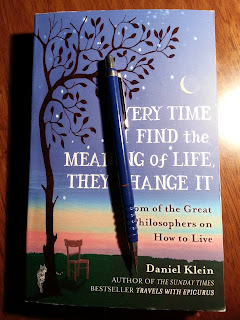Eşimle 10.yıldönümümüzü kutlamak amacıyla Avrupa’ya gidelim dedim, önce uçağıyla, oteliyle kendimiz organize edelim dedim, ama turların fiyatları daha cazipti. Biz de tur ile otel ve ulaşımı halletik( kişi başı 349 Euro), kalan kısmı kendimiz ayarladık. Öncesinde internetten resmi websitelerinden gezilecek yerleri çıkardık, harita üzerine işaretledik, ayrıca visitacityden bir program yaptık. Mart sonunda turumuzu yaptık.
Sonuçta programdakinden çok daha fazla yeri gezmeyi başardık.Mutlu olarak döndük, iyi ki gitmişiz diyebildik.
Ben en çok Budapeşte’yi beğendim, bana huzurlu bir şehir geldi. Prag çok karmaşıktı, Paskalya olduğu için bir sürü yabancı vardı ve çok kalabalıktı, Viyana da bayağ güzeldi ama zengin şehirlere karşı biraz ön yargılıyım, o yüzden favori olarak Budapeşte’yi seçiyorum, biraz daha Viyana’da vakit olsaydı, gezemediğim müzeleri gezmeyi isterdim, aynı şekilde pazartesiye denk geldiği için Budapeşte’de bazı müzeleri gezemedim.
Prag ise 2 gün ile fazla uzundu, son gün vaktimiz olmasına rağmen şehre gitmedik, tabi biraz da otelin uzak olmasının payı vardı. Sadece Budapeşte’deki oteli beğendiğim için onun adını yazayım: Hotel Budapest. Yeri bence gayet iyi, odaları da yeterliydi.
Rehberimiz genel olarak iyiydi ama sanki onun gezdirdiği yerler dışında pek bir gezilecek yer yokmuş, zaten kapalıymış, boşmuş gibi biraz heves kaçırıcı sözler söylüyordu.
Tur şirketine Bratislava için 20 Euro/kişi başı, Avusturyadaki Seegrote ve diğerleri için 55 Euro, Cesky Krumlov için 25 Euro verdik- toplamda 200 Euro verdik, bunların haricinde aşağıda yer yer belirttiğim üzere hediyeler, akşam ve öğle yemeklerine toplamda 900 Euro harcadık.
Evet bu kısa özet sonrası şehirlere biraz daha ayrıntılı bakabiliriz:
1. GÜN BUDAPEŞTE
Budapeşte sokakları
Budapeşte Sinagogu
Pazar öğle saatlerinde Budapeşte’ye vardık, turla önce Kahramanlar Meydanı‘na- Hosök Tere gittik. Macaristan’ın 1000 yıl önceki ilk kralı Arpad’dan başlayarak, Macar tarihindeki önemli kişilerin heykelleri meydanı çevreliyordu. Rehberimiz, meydan çevresindeki müzelerin içlerinin boş olduğunu söyledi. İşgaller sırasında boşaltılmış, çalınmış, vs.
0 noktası
Oradan Gellert Hill’e – Szent Gellert Ter -gittik, burası bir seyir terası. Macarları Hristiyan yapmak amacıyla buralara gelen Aziz Gellert, bu tepeden bir varil içinde yuvarlanmış. Kuzey doğu yamacında onun da bir heykeli var. Sonrasında Fisherman Bastion‘a gittik. Buranın içerisinde Matthias Kilisesi bulunuyor. Rehberin anlatımına göre ( başını kaçırdım maalesef) prens Matthias hapsediliyor, karga ile yüzüğünü annesine yolluyor, annesi de kargayı takip ederek oğlunu kurtarıyor. Bu nedenle kilise süslemelerinde kargalar bulunuyor. Kilisenin giriş ücreti tam 1500 öğrenci 1000 forint.
Fisherman Bastion
Matthias Kilisesi
Meydandaki (Trinity meydanı) bir heykelde de gene Kral Matthias var, macarlar Hristiyan olduktan sonra Matthias vaftiz edilirken, Matthias’ın heybetinden heyecanlanan Aziz, tacı elinden düşürüyor ve böylece tacın üzerinde haç eğriliyor, işte bu yüzden Macar tacının üzerinde taç eğriymiş ( Rehberimiz öyle dedi….)
Matthias heykeli kabartmaları
Budapeşte operası yapılırken, Avusturya imparatoru, Viyana’dakinden daha büyük olmasını istememiş, bu nedenle de küçük yapmışlar ama içi çok ihtişamlıymış, zaten Avusturya imparatoru da buna pek bozulmuş, ilk gidişi son gidişi olmuş ( Kaynak: rehberimiz)
Sonra otele döndük, biraz dinlenme sonrasında otel yakınında Mamma Mia diye bir restoranda yemek yedik, Gulaş çorbası güzeldi ama et pek bize göre değildi. İçecekler ile 7370 forint ödedik. Budapeşte’nin eskiden bayağ ünlü olan alışveriş merkezlerinden Mamut’ta dolaştık, pek birşey yoktu doğrusu ( ama üst kattaki pizzacı yemek için iyi olabilir)
Mammot AVM
Vee Budapeşte’de en çok hoşuma giden mekanlardan biri, şaşırmaya hazır olun, geliyor, geliyor, geldi:Buda tarafındaki Starbucks. İçerisinde güzel bir kitaplık, dizaynı çok güzel,klasik müzik çalıyor, kendimi mutlu ve huzurlu hissettiğim bir yer oldu. Gelenler de gençlerde ziyade, entel, sanatçı görünüşlü kişilerdi. Kahveye 690 forint ödedik.
2. GÜN
Sabah erkenden düştük yollara; metroya kadar yürüyüp, makineden zar zor biletimizi alarak( sadece bozuk para kabul ediyordu, yanılmıyorsam kağıt para kısmı bozuktu, ama kredi kartı ile ödedik), parlamento durağında indik. Parlamento biletimizi oldukça yüksek bir ücret (kişi başı 5200 forint) vererek aldık, ama sabah saatleri doluydu ( İnternetten almayı deneyebilirsiniz). Biz de şehirde dolaştık. St Stephen’s Basilica’ya girdik, bunun çok yakınında gül şekilli dondurma yapan bir yer var, gitmenizi tavsiye ederim, orada dondurmamızı yedik. Yol üzerinde İstanbul Kebab var, güzel bir yere benziyor ama biz girmedik. Yola devam ettik, kiliseyi gezdik ve çok çok güzel bir cafe olan Cafe Central‘de oturduk. Kahvelere 550 HUF, tatlıya 650 HUF verdik.

Parlamento turu, rehberli, rehber gururla anlatıyor Macar tarihini. Acaba Dolmabahçe’de de biz böyle övünüyor muyuz diye düşündüm. Rehber Macaristan’ın eskiden ne kadar büyük olduklarını tur boyunca vurguladı. Güzel bir parlamento, eskinden sigara içilen koridoru, Macarların meşhur eğri haçlı taçlarının saklandığı kubbe, ikiz meclisler, komünist dönemde tepesinde yer alan ama sonrasında indirilen yıldız, ısıtma ve soğutma sisteminin zamanına göre çok modern olduğu, geziden aklımda kalanlar.
Parlamento
Meclis
Parlamento binasını gördükten sonra, atladık tramvaya, marketlerine gittik. Beklediğimden çok turistik bir mekandı, benim için hayal kırıklığı oldu. Ben taze taze meyve sebze bekliyordum, daha çok manav tarzı bir yerdi. Zaten sadece zeytin ve domates aldık,onların da pek iyi olduğunu söyleyemeyeceğim:(
Gene attık kendimizi yollara, bir paskalya pazarına denk geldik, oradan uygun fiyata hediyelik acı biber aldık, (çok acı değilmiş aslında). Chain Bridge’i gezdik. Akşam ise, turizm ofisinden biletini aldığımız( kişi başı 4700 forint- HUF), Tuna turu ve müzikli akşam yemeği vardı, bizimle ilgilenen rehberimizi çok sevdim, çok açık sözlü bir kızdı, zenginlerin daha çok Buda kısmında yaşadığı bilgisini verdi.
Buda’nın meşhur hediyelikleri renkli, dantelli giysiler, örtüler; biz pazarlık yapmamıza rağmen makul fiyata bulamadığımızdan almadık. Bir buzdolabı süsü, bir de Budapeşte yazılı torbalar içerisinde acı biber aldık.
Bizim gezmediğimiz ama gezilmesi tavsiye edilen yerler; Margaret adası( yaz mevsiminde), Sinagog,
3.GÜN- BRASTİSLAVA üzerinden VİYANA
Turla beraber yola çıktık, varış noktamız Viyana’ydı. İnternette Bratislava’ya gidin, ama turla gitmeyin, taksiye atlar gidersiniz tarzında bilgiler vardı. Düşündük, taşındık ve turla gitmeye karar verdik, neden; ya nerede duracağımızı bilmiyoruz, taksi var mı yok mu, ne zaman buluruz, hadi bulduk, ne zaman döneriz, yetişebilir miyiz, bilemedik. Bu nedenle dert yok, tasa yok, tura katıldık, pişman da olmadık.
Avusturya Macaristan İmparatorlarının Taç Giydikleri Kilise
Eczane
Sisi’nin favori cafelerinden
Bratislava gerçekten mini minnacık bir şehir, ne kalmış aklımda, kanalizasyonda çalışan adam heykeli, Sisi’nin takıldığı cafe, Avusturya Macaristan imparatorunun taç giydiği kilise, Roma kapısı, işte bu kadar. Hm bir de yolda rastlayabileceğiniz Türk öğrenciler:) Buradan da buzdolabı süsümüzü aldık, görevimizi tamamladık:)
Saat 14 civarına Viyana’ya vardık, müzelerin olduğu meydanda indik, rehberimizi bize kısa bir şehir turu yaptırdı. Veba anıtını, lüks mağazaları görerek, operaya ulaştık ve orada serbest zaman başladı. Hemen koşa koşa, müze canavarları ( abartıyorum tabii:), National Treasury Museum’a saldırdı:). Ne kadar şanslıydık, normalde Salı günü kapalıyken, gittiğimiz salıdan itibaren açık olmaya başlamış, oley oley oley. Neler var müzede, süslü püslü kıyafetler, şamdanlar, vs.
Müzeyi bitirdikten sonra yakınlardaki kütüphaneye girmeye çalıştık ama ya kapalıydı, ya da biz girişi bulamadık. Tekrar operaya doğru inip, Hotel Sacher’in cafesinde-yeni olanda ( otelin iki cafesi var, sıra beklenen eski cafesi ve orijinal olanı, diğeri ise daha az sıra beklenen aynı tatlının sunulduğu yeni olanı) bu muymuş diyerek bir sacher yedik ( o kadar da kötü değildi, biraz çamur atayım dedim:).
Hotel Sacher
Akşam yemeğini ise süper bir şekilde Figlmüller wollzeile’de yedik, yanlışlıkla tafelspitz( 2 tanesi 41 euro) denilen paylaşılan haşlama et sipariş etmişiz, ama süper lezzetli ve süper doyurucuydu, garson çok iyiydi, salatası, ortamı biz çok beğendik, 61 Euro ödedik.
4. GÜN VİYANA
Viyana’daki ikinci günümüzde turun düzenlediği geziye katıldık, ikinci dünya savaşı sırasında Nazilerin uçak ürettikleri eski bir maden ocağı olan Seegrote’yi ziyaret ettik. Bu Avrupa’nın en büyük yeraltı gölüymüş (Acaba?), sonra Hundertwasser evlerini gördük. Mimarı Hundertwasser bunları kendisi için hiç bir ücret almadan sosyal konut olarak yapmış. Doğada herşeyin yumuşak, yuvarlak hatlı olduğundan yola çıkarak yapmış.
Hundertwasser Evleri
Baden’e uğradık, Beethoven’ın 9. senfonisini bestelediği müze eve girdik( turdan bağımsız olarak- öğrenci 3 Euro, yetişkin 6 Euro).
Baden Beethoven Müzesi
Oradaki pazarda çin çorbası içtik, Türkiye’de yaşamış bir bayan Alman pazarcıdan alışveriş yaptık, en son olarak da öğlen şöyle bir Schönbrunn Sarayı’na uğradık.Burası yazlık saray, bahçesi ile ünlü, 1441 odası bulunuyor, İmparator Leopold yapımına başlamış ama Maria Teresa bayağ bir değiştirmiş. Kraliçe Maria Teresa da bayağ ünlü ve becerekli bir imparatoriçe, aslında eğitimli değil ama tahta geçmesi planlanan kardeşlerini vebadan kaybedince kendisi geçiyor, kız çocuklarının okumasını zorunlu kılıyor, aşı getiriyor, sarayında çoğaltıyor, halka ücretsiz dağıtıyor. Mimari düzenlemeler yapıldı, şehir planlaması yapıyor. Bunlar aklımda kalanlar, bir de 16 çocuk doğuruyor. 40 yıl tahtta kalmış.
Schönbrunn Sarayı
Yemeğimizi Cafe Central’de yedik. 20.5 Euro Schnitzele, 19.6 ise waller laibchen’e verdik. Tur bizi Viyana merkezde bıraktı, koştura koştura Sisi Müzesi’ne gittik. İki kişi 25.8 Euro verdik. Sisi, Avusturyayı 68 yıl yöneten Kral Franz Joseph’in asi ruhlu eşi. Güzelliğine çok düşkün, devamlı spor yapıyor, diyet yapıyor,devamlı seyahatte, sarayda durmuyor, trajik bir şekilde Cenevre’de öldürülüyor. Filmlere de konu olmuş Sisi, müze zaten Sisi’nin yaşadığı yer olan Hofburg Sarayının içinde, Sisi’nin odası, eşyaları sergileniyor.
Bir de Aziz Stephen katedraline gittik.
Akşam, Opera’da Ovsianikov’un yönettiği Le Corsaire Balesine gittik. Bilete kişi başı 11 Euro vermiştik. İnternetten önceden almıştık, ama yerimiz çok kötüydü, oturduğumuzda sadece orkestradan birkaç kişiyi görebiliyorduk, restricted view diyor ama bence almost no view demeliler.
Viyana’da bizim gitmediğimiz ama ilgi çekebilecek diğer yerler; Sigmund Freud Müzesi, modern eserleri barındıran, özellikle Schiele ve Klimt’in resimlerine ev sahipliği yapan Leopold Müzesi, Mumok, girişini bulmayı başaramadığımız Ulusal Kütüphane, Mozart Haus, İspanyol Binicilik Okulu.
Viyana’da hediyeler, yemekler ve ulaşım için ekstra 200 Euro harcamışız.
5.GÜN CESKY KRUMLOV üzerinden PRAG
Cesky Krumlov’a da turla gittik. Burası da şirin küçük bir kasaba, şerbetçi otları ile ünlü. Simgesi ayı. Rosenberg’ler burada yaşamışlar. Kilisesine girdik. Buraya Japonlar hep balayına geliyorlarmış. Paskalya nedeniyle kurulan pazarından alışveriş yaptık, paskalya yumurtaları aldık. Vltava nehri buradan doğuyormuş. Grand Otel’de çorba içtik ama tavsiye edemeyeceğim.
Cesky Krumlov
Öğle saatlerinde Prag’a vardık, kısa bir yürüyüş sonrasına Old Town Square ve meşhur astronomik saatine geldik. İlk kez 1410’da yapılmış ve dünyanın çalışan en eski astronomik saatiymiş.
Astronomik Saat
Akşam pizzacıda yemek yedik. Prag’da Manufaktura diye bir mağaza var, tarz olarak bizim bayağ hoşumuza gitti, oradan alışveriş yaptık.
Biz gittiğimizde Prag çok kalabalıktı, heryerde Paskalya nedeniyle bir sürü turist olduğundan biraz sıkıldık. Ama süsleri de kötü değildi hani:)
Paskalya süslemeleri
6. GÜN PRAG
Sabah erkenden, iyi bir programla aktarmalı olarak metro ile Prag Kalesi’ne gittik,( 30 dakikalık 3 binişli, gidiş dönüş yetişkin bileti 96 Çek koronası -CZK) St Vitus Katedralini, Golden Lane’i gördük.Yürüyerek aşağı indik, önce Lennon duvarını gördük, sonra Charles Bridge’e gittik. Sadece yayalara açık. Tin Kilise’sine gittik.
Charles Bridge
Golden Lane Evleri
St Nicholas Kilisesi’nin girişini bir türlü bulamadık, dışarıdan görmekle yetindik.
7. GÜN PRAG
Bugünü Karlovy Vary’e ( Karlsbad- Karl’ın banyosu) ayırdık. Student agency denilen otobüs firmasıyla, kişi başı 300 koronaya gidiş dönüş bileti aldık. Otobüs rahattı. Her yerde kaynak suyu var, ben hepsinden bir büfeden aldığım özel bardağı(fiyatı 100 korona) kullanarak tattım, genel olarak demir bir kapta bekletilmiş su tadındalar:) Güzel bir şehir, Atatürk’ün oteline gittik, içeriye girmedik.
Atatürk’ün Kaldığı Otel
Teleferik ile tepeye çıktık.
Sonrasında güzel bir yemek yedik, kağıt helvasından aldık.Orada 550 koronaya güzel bir yemek yedik.
Yemek Mekanımız
8. GÜN PRAG
Dönüş günümüzde otelin yakınındaki Decathlon’a gittik, şehre gidip gelmeyi pek istemedik.
Prag’da görülebilecek diğer yerler: Komünizm Müzesi, Yahudi Müzeleri, Terezin Kampı, Wencelas Meydanı
Prag’da toplam olarak 350 Euro civarında ekstra harcamamız oldu. Burada lego ve herkese hediye aldığımızdan biraz fazla oldu.
Yalnız gezmesi uzun, yazması daha uzun oldu, bir de üzerinden zaman geçtiği için maalesef bazı ayrıntıları unutmuşum, biraz birbirine karışanlar da olmuş olabilir gene de, yazdığım gene de iyi oldu değil mi?






































































































































































































































































































































































































